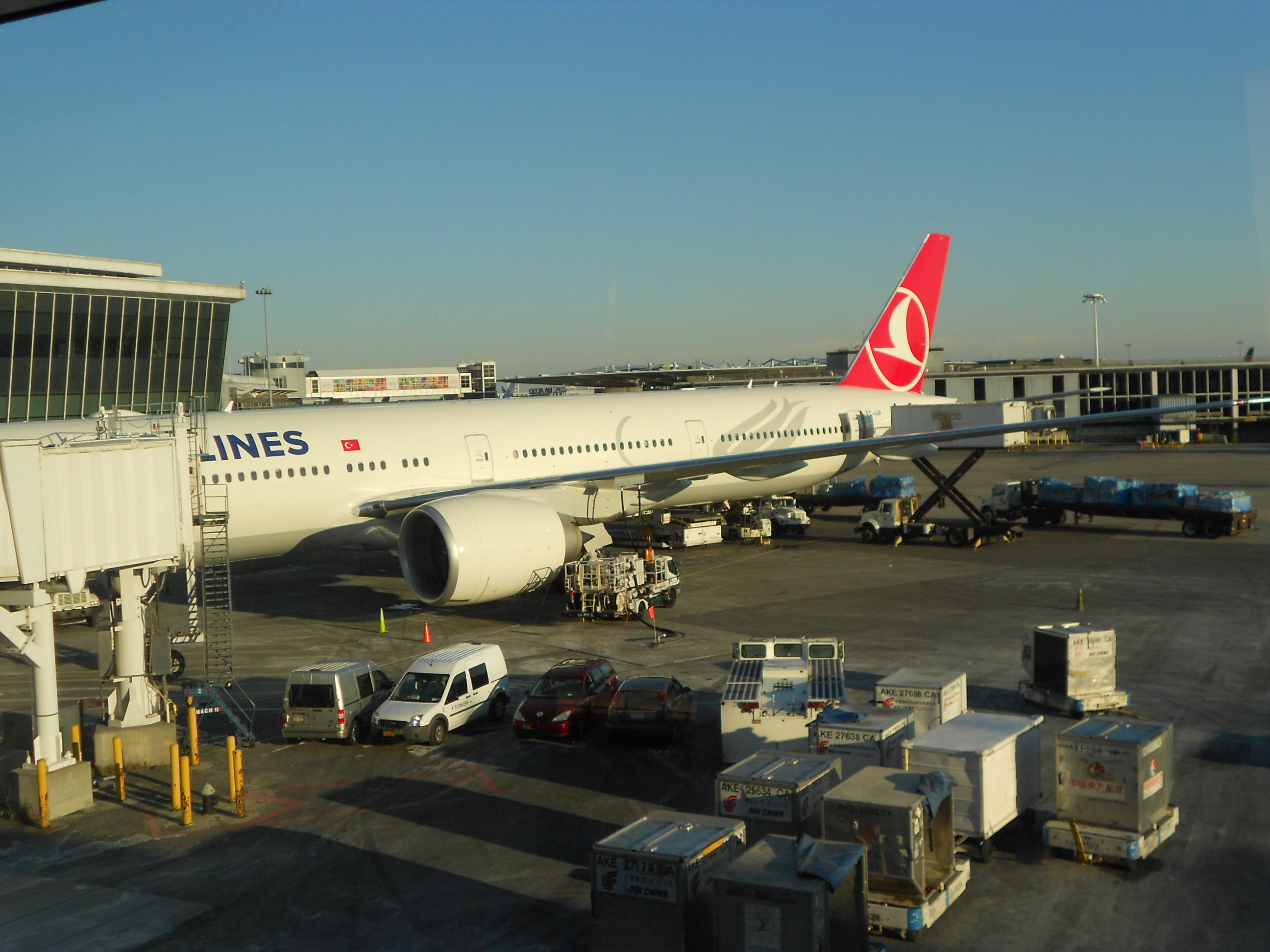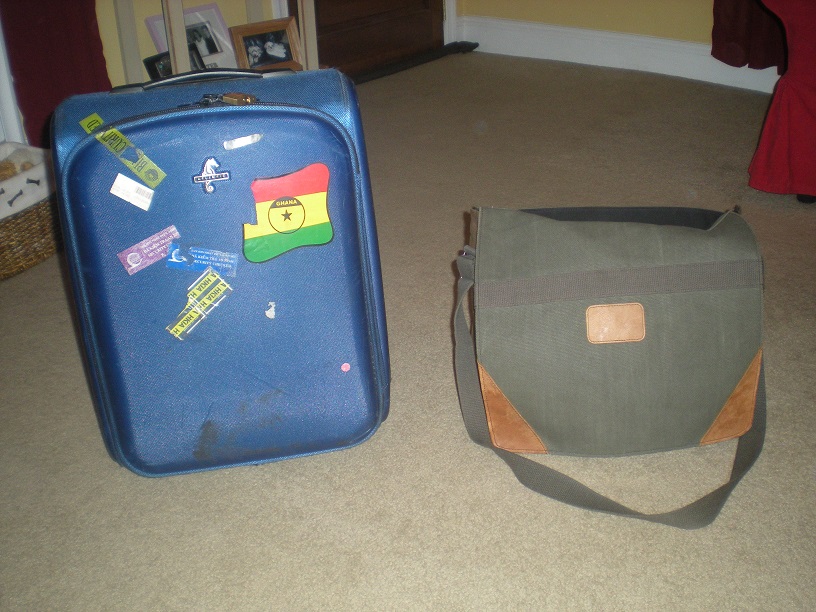Author: Scott Burke
Volunteer Handbook for Kenya
We at Cosmic Volunteers create custom volunteer handbooks for our group service learning trips abroad. Below is a small excerpt from our Volunteer Handbook — Service Learning in Kenya.
Tips — Traveling from USA to Kenya
- Before you leave home, make sure you have your passport!
- Make sure to bring any prescription medicines
- Everything else can be replaced in Kenya (clothes, toiletries, etc)
- Assume the airline will be strict with luggage weight rules (50 lbs per bag)
- Always carry your passport on your person – not your luggage
- Hydrate – with water – before, during and after the flights
- Don’t sleep on the plane unless it’s night time in Kenya (to adjust quicker)
- Avoid excessive caffeine, sugary drinks, and energy drinks
- Avoid heavy / protein meals
Africa in Western Media
Edith Waringa Kamau — a Kenyan who’s currently a student at Washington and Lee University — has done a wonderful new documentary called “Africa In Western Media”. Her aim is to show how distorted the coverage of Africa is in the western media. It’s not all AIDS, war, and famine in Africa.

Africa is a Great Country
Swedish photographer Jens Assur has an exhibit of 40 large-format photos of Africa that will be on display in Sweden and then travel to three cities in Africa.
As this article explains, Assur’s photos focus on everyday urban life in Africa, instead of the usual stuff we see from Africa such as wildlife and AIDS clinics.
Insurance for Your Volunteering Trip Abroad
There are two types of insurance available for volunteering trips abroad – Travel Insurance and Medical Insurance. I strongly urge you to get both of them.
Travel Insurance covers you for travel-related costs like lost baggage, canceled flights, and travel delays. Medical Insurance covers you for medical expenses like hospital visits, prescriptions, and emergency evacuation.
Where to Start
First – find out if one or more of the following entities will provide you with insurance coverage abroad:
- Your insurance policy back home
- The volunteering placement agency
- The credit card used to book your flights
- The airline(s)
If you do not get insurance from one or more of the above sources, then you will have to obtain a policy from an insurance company that specializes in travel and medical insurance abroad.
What to look for in a policy
Whether you use an existing policy or obtain a new one from a travel specialist insurance company – make sure your policy provides at least $50k in benefits and covers (at minimum) the following:
- Trip Cancellation / Delays / Interruption
- Baggage Delays or Loss
- Medical Expenses
- Emergency Medical Evacuation
Make sure to find out also about:
- Specific coverages
- Pre-authorization requirements
- Pre-existing conditions
- 24 hour hotline
- Deductibles, co-payments, and refund policies
- Are payments made abroad – or reimbursed to you
Which company to choose
If you obtain a policy from a specialist insurance company – choose a company that provides one policy that covers both travel insurance and medical insurance.
The U.S. State Department has a list of companies that provides travel and medical insurance abroad: https://travel.state.gov/content/passports/en/go/health/insurance-providers.html
For all of my trips abroad (including the very first one in 2000), I have used HCC Medical Insurance Services (formerly MNUI). Their website is www.hccmis.com. They are a recognized leader in international health. (Full Disclosure: I’m not affiliated with HCC in any way and don’t receive any commissions)
When you’re abroad
- Have your insurance card, a claim form, and copy of the policy
- Leave copies of all of the above with family back home
- Keep copies of all paperwork like medical charts, prescriptions, boarding passes, and currency exchange receipts
- Follow the claims-submission process meticulously

Departure Day from Home
Today is the big day! You’re finally ready to leave home and fly abroad for your volunteering trip!
This will undoubtedly be a day filled with mixed emotions – both for you and your family and friends – as you’re about to have an experience that few others ever will.
You should of course be feeling major excitement for the adventure you’re undertaking.
Like most other volunteers though, you (and your family) will also likely have some level of fear and anxiety. That’s perfectly normal, so don’t worry so much.
Then, as you finally settle into your seat on the plane, you should also be feeling a genuine sense of relief. After months (maybe even years!) of planning and preparation for this trip, you are literally and figuratively ready for take-off!
From a practical perspective, there are some things you need to keep in mind.
Tips for Your Departure Day:
1. Don’t leave home without these 3 things
- Your passport
- Money ($100 in cash & ATM card)
- Prescription medicine(s)
Everything else can be replaced relatively easily, such as clothes, toiletries, even electronics like cameras and cell phones.
2. Weigh your luggage
Before you leave home, weigh your luggage (including carry-on bags). Every airline has its own weight policy, so check with your airline. Assume that the airline will be very strict with luggage weight rules. If you’re luggage is overweight, expect the airline to charge you a fee.
Most airlines allow two checked bags on international flights, with a maximum weight of 50 lbs (23 kg) per bag.
Alternatively, if your bags are overweight, you can remove items from your bag until you’re under the weight limit. You can then give those items to your family – assuming they’re still at the airport to see you off after check-out. (If you’re bringing 100 lbs of luggage though, you’re bringing way too much stuff!)

3. Arrive early at the airport
Most airlines officially advise travelers to arrive at the airport at least three hours before your international flight’s departure time. However it is best to extend this to four hours, in case of unexpected traffic delays on your way to the airport. The worst-case scenario should be – you arrive 4-5 hours before your flight, leaving you with a bit more time to kill. This is much better than missing your flight of course!
How to Photograph People Abroad
It’s usually a safe bet to assume that a person going on a volunteer trip abroad is a respectful person who is considerate of others.
Unfortunately, something strange seems to happens when many of these otherwise good folks get a camera in their hand abroad.
They tend to lose all sense of decorum and respect for others. It usually takes the form of pointing cameras in peoples’ faces as well as capturing private moments.
How can you be respectful of people while still getting some memorable shots to show off?
Tips for Photographing People Abroad
1. Connect First. Get to know the person before you take their photo. Don’t just shove a camera in someone’s face. For example if she’s a vendor at a market — buy something from her as you strike up a conversation. Talk about not just her shop but perhaps her family, kids, grandchildren, the town, the weather (it’s a universal topic!)
2. Ask permission. Even after establishing a rapport — ask the person if it’s OK to photograph them. I realize that there’s a saying, “It’s easier to ask for forgiveness than for permission” — but this isn’t one of those times to follow this rule. Be nice and ask first.
3. Pay them. This might seem strange, especially to those who haven’t traveled much. But keep in mind that for years foreigners have used photos of locals’ to make money via commercial guide books, prints, and websites — without any permission or payments to the locals in the photos. Locals have become savvy to this, so they don’t want anyone using their image without remuneration. So — offer to pay them. I’ve found that the going rate in most countries is about $1 US Dollar.
4. Respect Privacy. The Pashupatinath Temple in Nepal is one of the most important Hindu temples in the world. Among other activities, locals hold funerals at the temple (on the banks of the Bagmati River) that are easily visible to the public. Foreigners just can’t seem to resist taking photos of the deceased and their mourners. Question: How would you like it if a stranger was standing graveside taking photos as you buried your grandmother? Just because something is publicly visible doesn’t mean it’s right to take a photo.
5. Offer to send a photo. After talking with the subject of your photography, offer to send them a printed copy(s) of the photo (either while you’re still in-country or after returning home). But don’t make a promise to them that you’re not going to keep! If you say you’ll send a copy, then do it of course. They’ll appreciate the gesture and likely tack the photo on their wall (especially if it’s a kid).
The Ghana They Never Show You
I came across by accident today a video from someone named Prince Asante in Ghana. Yes indeed, Ghana is more than mud huts, sakawa, and cocoa!
Emma Murray Volunteers in Guatemala
Emma Murray wrote a blog about her volunteer experience in Guatemala. She spent two weeks helping to build a house in a village outside of the city of Antigua.
Here is an excerpt from her blog:
Day 15 – Last Day
Bittersweet endings seem to cling to me. It’s a pattern of occurrence I cannot seem to shake off.
We cranked out half of the house today in compensation for the time we lost waiting for materials earlier this week. At the end of the day our coordinator brought us cake and drinks to share with the family and to celebrate a long and hard week we endured to bring them this house.
It was sad to say goodbye to the family. To Hugo and Elivia, the little children. To the kittens born a couple days ago in the barn house. To the crazy uncle that would always come up to me and say “Whaaaa tyyme izit!!!!!” no matter how recently he had just asked me. To the kind grandmother that sewed my pants (I brought her a traditional cake bread the next day in thanks, and to my horror as soon as I handed it to her I realized that she had no teeth…. I don’t know how she ate it).
And to the masons especially. They were so patient and understanding. I learned so much. Who knew I could build a house?!
I leave for the airport soon. In the 25+ hours of travel I’m sure more eloquent words will come to mind, but for now I’d like to give everyone that I have met a giant hug.
I realize that they have all shaped this adventure in their own way. However trivial or large, my new experiences would have been nothing without the people that created them.
Emma Murray (USA-Germany)
House Building Volunteer, Guatemala
Volunteer at a Rehab Center in Ghana, Africa
Cosmic Volunteers partnered last year with Chosen Rehab Center in Ghana to send them volunteers.
As their director Cobe wrote in a recent newsletter, they are one of the largest drug and alcohol rehabilitation centers in West Africa. He and his wife currently house 130 “ex-addicts, ex-criminals, and ex-menaces to society.”
They are always in need of volunteers, including medical personnel (doctors, nurses), counselors, and social workers. They also welcome volunteers to help out with child care, literacy training, sports coaching and more.
Here is a slideshow from Cosmic’s Director Scott Burke’s visit to Chosen Rehab in December 2011:
